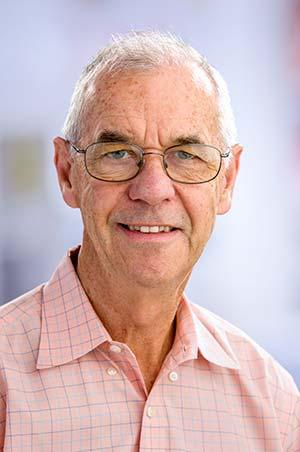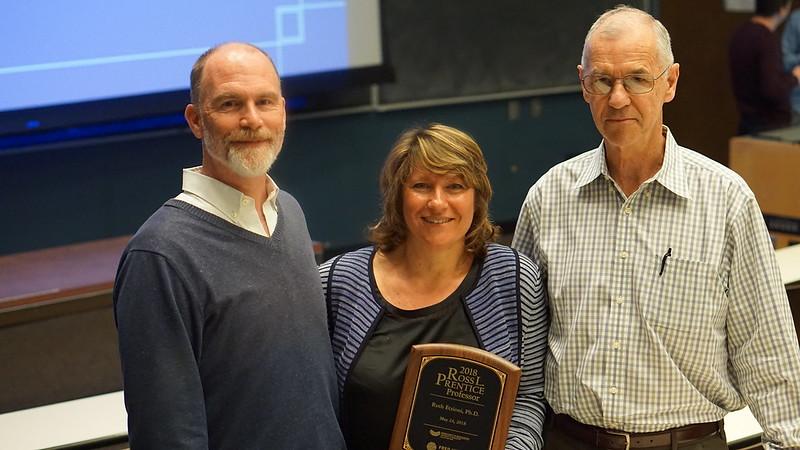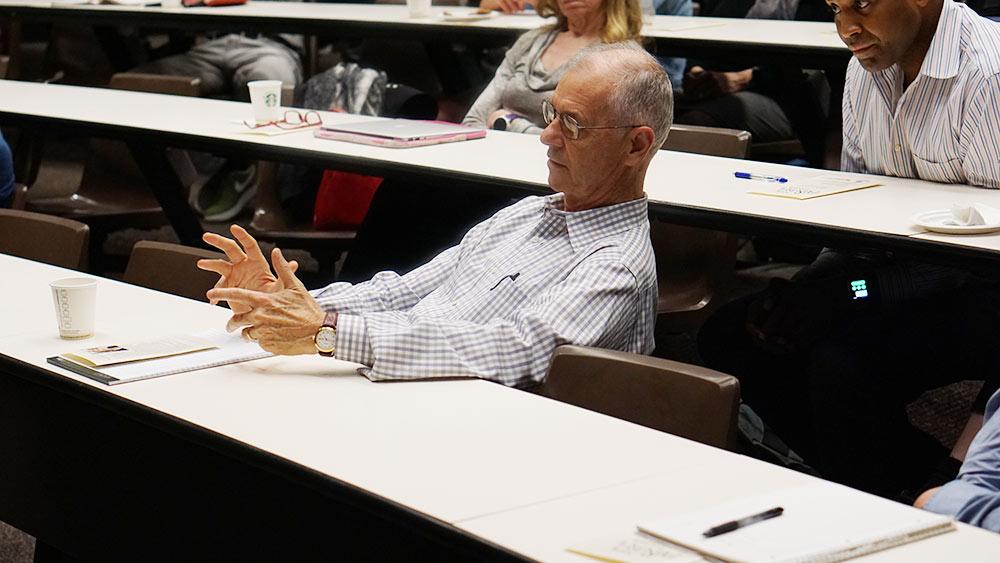
After a remarkable and distinguished career, Ross Prentice, professor of biostatistics at the University of Washington School of Public Health and professor of cancer prevention and biostatistics at the Fred Hutchinson Cancer Center, retires at the end of this year. His achievements in the field of biostatistics and his role in advancing the reputations of UW and Fred Hutch are incalculable.
Leadership and legacy
“Ross is an international giant in the discipline of biostatistics. He truly is a legend in our field," said Thomas R. Fleming, a UW professor of biostatistics and former department chair who was recruited to UW by Prentice in 1982.
"As one of our earliest faculty members, his leadership was critical in the development of our academic and scientific programs enabling them to become among the most highly rated in the world.“
Fleming also praised Prentice’s extraordinary administrative vision and leadership abilities, both at UW and during his years as senior vice president and director of the Hutch’s Public Health Sciences Division.
“At every turn, Ross fostered a collaborative spirit between the Hutch and UW. And in recognition of his achievements, of his dedication and of his leadership, the UW and Fred Hutch jointly established the Ross Prentice Endowed Professorship of Biostatistical Collaboration,” said Fleming.

“I can’t tell you how rare it is to have a large academic institution and a free-standing research institution that cooperate the way the Hutch and the UW have, especially in the public health area. That this cooperation continues to this day is extremely valuable and mutually beneficial. Together, we have a strength beyond the sum of the parts,” said Prentice in a Statistical Science article written by Hutch colleagues Li Hsu and Charles Kooperberg.
Contributions to science
“Ross has produced landmark contribution after landmark contribution and he’s done it across many scientific areas and methodology and practice.“ - Thomas R. Fleming
Prentice’s contributions to the theory and practice of statistics are immeasurable, particularly, his work with the Women’s Health Initiative.
“Ross has produced landmark contribution after landmark contribution and he’s done it across many scientific areas and methodology and practice. In survival analysis, in the design and analysis of clinical trials, including rigorous validation of biomarkers as replacement endpoints, in epidemiological cohort studies, in nutritional and genetic epidemiology and measurement error and advances in prevention research,” said Fleming.

“While Ross has made numerous contributions in many areas related to cancer and other chronic diseases, he has maintained a focus on nutrition and health throughout,” said Garnet Anderson (PhD ’89), who succeeded Prentice as head of the Public Health Sciences Division. “His leadership in this area represents an inspiring example of the impact that a statistician may have by engaging deeply, consistently and creatively in a scientific area and, where needed, taking on responsibilities beyond those of data and statistics.
“In all this work, Ross has been a remarkable leader, inclusive and respectful of the perspectives of multiple disciplines, courageous and persistent in the face of opposition, strategic and insightful in navigating complex situations, and extremely generous in sharing credit.”
Post retirement, Prentice will do some nutrition epidemiology consulting, but his main focus is to spend more time with family, working in the family-owned real estate business with his daughters and “keeping up with our successful, jokester sons-in-law and our now grown, super grandchildren, while being open to new involvements. This could include greater church involvement, though any new involvement will need to be compatible with substantial beach time."
Advice to the next generation of statisticians
For biostatistics students and researchers who are just starting their statistical careers, Prentice offers the following advice:
Whether as an independent researcher, or as a member of a collaborative research group, it is crucial to maintain sharp research credentials.
Early in a biostatisticians career this typically involves further development, adaptation, and application of classroom and dissertation methodology. On the longer term it may also involve substantive research contributions related to the applications in which one is engaged.
Biostatistical training prepares one for a range of roles in collaborative research, and participation in collaborative research can be highly educational and can lead to a fulfilling career. To the extent practical it is desirable to be active in both independent and collaborative research.
Classroom teaching can also be very rewarding and fulfilling. My advice is to actively plan how much engagement one wishes to have in each of these areas with due account of funding sources, and be rigorous in adhering to such plans. Of course, career and life balance are fundamental to an enjoyable and fulfilling life, and this may require some constraints on the time and energy you devote to your career. Involve your family in your major career choices, you won't regret doing so!
Message to colleagues
Colleagues, including staff members and students, if you are fortunate to have such, are so important to one's contributions and achievements. Be cognizant of the career and life interests of the people with whom you work. My observation is that we all have blind spots in our interpersonal interactions. If you are working with a valued colleague whose career is not progressing so well because of such blind spots, take the time to cover for your colleague until needed changes can be identified and corrected. You will then have an even more valuable colleague, who is likely to be very loyal. Capable and insightful colleagues, and skilled and congenial long-term staff members, are keys to the success of our research enterprises in my opinion, especially for larger research projects.